This book is not aimed at work-shy, soap dodging, unambitious couch potatoes. I have assumed at least that you: (a) need to be employed, and (b) believe that the swapping of time for money, which constitutes the basis for employment, sit with you as a fair exchange. I am taking it for granted that you are interested in progressing your career, and that in some way, however basic or however complex, you bring certain skills to your workplace. Top of the list is the belief that you have the self-respect of wanting to do your job as well as you can.
What this book isnt
This is not a smart-arse book that will help you trick your employers. Neither is this a get out of stuff or how to get even manifesto. It is not meant to help you sue your boss for situations that you manipulate, nor is it to make other people miserable. And in no way is this merely an exquisite example of negative thinking!
What this book is
This book is designed to put you in a positive state of mind for dealing with the wickedness that can manifest as an inevitable consequence of working for someone else. As an employee you cannot just do what you want; you have to heed the wishes of others, and at times you will interpret these wishes as evidence of madness, or badness, or sheer incompetence. However, that person is probably getting paid more than you, has more clout than you, and unfortunately may have the power to relieve you of your position. These poor bosses will make the mistake of imagining there are plenty more where you came from.
It is a plain guide for coping in the face of madness from others, and from your own madness if things are getting too much. To do this, you need strategies, and this book will give you practicable strategies.
Your success with these strategies will ensue if the following hygiene factors are followed 100%. For example:
1. You turn up for work, on time (special, unplanned, emergency situations excluded) and are dressed appropriately.
2. You are not verbally or physically abusive.
3. You have established that you are qualified for the job as described in the hiring process.
I would like to say your skills should match the job description, but sadly such documents are not always available at the interview. Try requesting it! That is likely to be viewed positively and will help them make a decision about whether or not to hire you! If a job description does not exist, then offer to write it when you have been in the role for a while.
What the book has to offer
I am going to describe nine different profiles of mad bosses the pure types. However, when you are dealing with real people, you often find a mixture of behaviours. Therefore, where appropriate, Ill indicate how these pure types are typically combined in real characters. I describe these in chapters four to twelve.
The first type is the Friend Then Foe Then Friend Again boss. You will probably recognise his moodiness and inconsistent behaviour. I then explore the world of the Mr Long Hours boss who thinks that working all the hours of the day is a desirable trait. I next look into how power corrupts in the Power Crazy and No Power boss profiles.
If you have ever worked for someone who seemed to resent your existence then you will appreciate the I Hired You, Now I Hate You boss. Then I reveal what its really like working in sales, and how if you wish to stay sane in the mad world of the Sales Manager boss, it will require a great deal of resilience on your part.
You will find out about the differences between power corrupted bosses and those who manage with fear in the Fear Merchant. These mad bosses, like the Small Business Owner boss, are experts at creating and controlling their own immediate little world. And if all that is not enough to cope with at work, you may even have to endure the romantic attention of your boss, which is covered in the Boss In Love.
And then there are chapters which are more generally useful.
 The interview scenario; use it to ask more than just about the company growth strategy
The interview scenario; use it to ask more than just about the company growth strategy
 Interview techniques to be aware of
Interview techniques to be aware of
 Stress and the organisations that advise you
Stress and the organisations that advise you
 Fun Stuff bring fun to work
Fun Stuff bring fun to work
 Saying Goodbye
Saying Goodbye
Of course, I would like to be able to thank all the people who influenced and inspired me to write this book, however, given the circumstances I think that may not be appropriate! But I thank you all anyway, very, very much
I would like to thank Caroline Lenton of Crown House for her faith in me. I am very grateful for Carolines generous support and guidance and her refreshing and positive attitude to this project. I would also like to thank my editor Peter Young and his patience with me. Peter, a tough task master , kept my feet on the ground. His challenges to my work have added clarity to my arguments, thank you Peter.
I would like to thank my wonderful daughters, Lauren, Naomi, Olivia, and Rianna for their patience with a mother with whom they had to share this work, this new baby, for many months. Thank you, my lovely girls.
Thanks also to the many people who told me their tales of their work experience, explaining the details of their mad boss, and how they coped, you may see your story here.
Is Your Boss Mad?
Successful business managers may share many of their personality traits with those found among incarcerated patients legally classified as having psychopathic disorder or mental illness.
Belinda Board and Katarina Fritzon (University of Surrey) found that a sample of senior British managers and chief executives averaged higher scores on self-reported measures of histrionic, narcissistic, and compulsive personality than did two samples of former and current patients at Broadmoor hospital.
These personality dimensions reflect characteristics such as superficial charm, lack of empathy and perfectionism. However, unlike the Broadmoor patients, the business managers scored significantly lower on antisocial, borderline, and paranoid personality dimensions.
These dimensions reflect characteristics such as aggression, impulsivity , and mistrust. The senior business managers appear to possess elements of psychopathic personality disorder that have been referred to as the emotional components, and they closely resemble characteristics known to be beneficial to achieving in a senior management role, the authors said. These findings are consistent with the concept of successful psychopaths people with personality disorder patterns , but without the characteristic history of arrest and incarceration, they explained.
Board and Fritzons results were obtained by asking 39 business managers to complete the Minnesota Multiphasic Inventory for DSM III Personality Disorders, and by comparing their scores with those recorded for 1,085 current and former patients at Broadmoor. The relatively small sample size of the business manager sample calls into question the reliability of these results, the authors cautioned.
Board, B.J. & Fritzon, Katarina, F. (2005). Disordered personalities at work. Psychology, Crime and Law, 11, 1732.
A Company
A company is like a tree full of monkeys. The ones at the top look down and all they see is lots of happy faces smiling up at them. The monkeys down below look up into the branches above and all they can see are arseholes

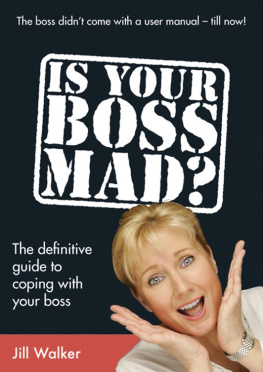
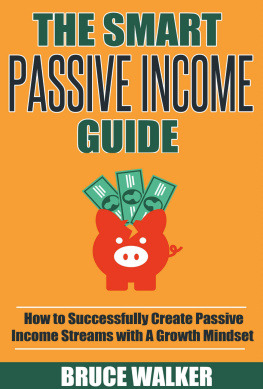





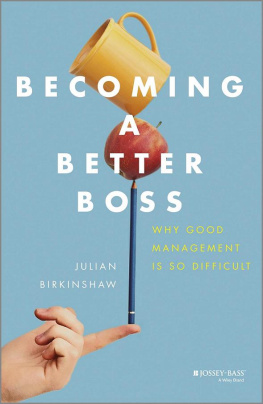


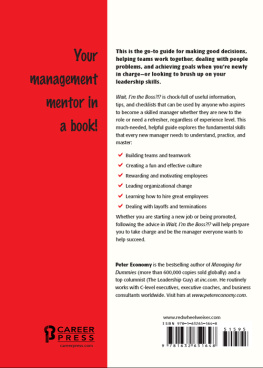
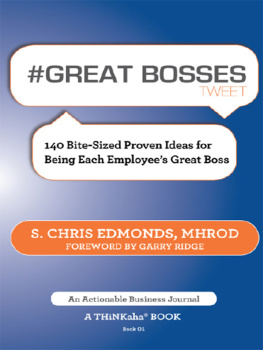




 The interview scenario; use it to ask more than just about the company growth strategy
The interview scenario; use it to ask more than just about the company growth strategy Interview techniques to be aware of
Interview techniques to be aware of